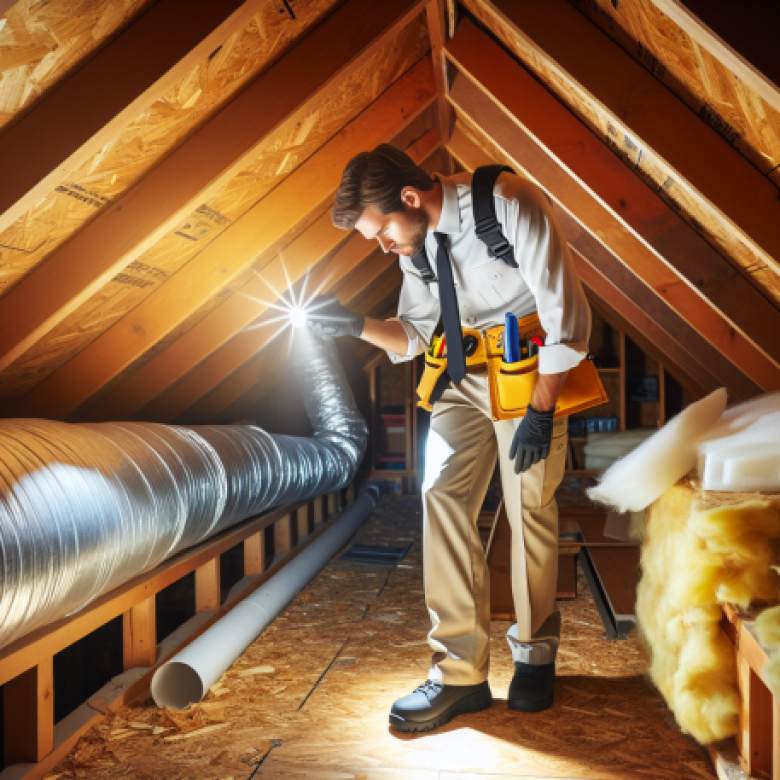When it comes to maintaining a healthy indoor environment, humidity plays a crucial role. You might not think about it often, but the moisture levels in your home or office can significantly affect your air quality. In this blog post, we’ll dive deep into how humidity impacts indoor air quality, what you can do to manage it, and why it matters for both residential and commercial properties. Whether you’re dealing with water damage restoration or simply want to improve your living space, understanding humidity is key.
Understanding Humidity: What Is It?
Humidity refers to the amount of water vapor present in the air. It’s typically expressed as a percentage, indicating how saturated the air is with moisture. For example, if the humidity level is 50%, that means the air is holding half of the maximum amount of moisture it can at that temperature. But why should you care about these numbers? Well, humidity can influence everything from your comfort level to the health of your indoor environment.
High humidity levels can lead to discomfort, making you feel sticky and hot. It can also create a breeding ground for mold and mildew, which can trigger allergies and respiratory issues. On the flip side, low humidity can dry out your skin and respiratory tract, making you more susceptible to colds and flu. So, finding the right balance is essential for maintaining a healthy indoor atmosphere.
In residential properties, managing humidity can be as simple as using a dehumidifier or ensuring proper ventilation. For commercial properties, however, the stakes are higher. Poor air quality can lead to decreased productivity and even health issues among employees. That’s where Projekt Restoration comes in, offering comprehensive solutions for both residential and commercial property restoration.
The Effects of High Humidity on Indoor Air Quality
High humidity can wreak havoc on your indoor air quality. When moisture levels rise above 60%, it creates an environment ripe for mold growth. Mold spores can circulate in the air, leading to a host of health problems, including asthma, allergies, and other respiratory issues. If you’ve ever noticed a musty smell in your home, that’s a telltale sign of mold lurking in the corners.
Moreover, high humidity can also affect your home’s structure. Excess moisture can lead to wood rot, damage to drywall, and even compromise the integrity of your home’s foundation. If you’re dealing with water damage, it’s crucial to act quickly. Water damage restoration services can help mitigate these issues before they escalate.
In commercial settings, high humidity can lead to equipment malfunctions and increased energy costs. HVAC systems have to work harder to maintain comfortable temperatures, which can lead to higher utility bills. Additionally, employees may experience decreased productivity due to discomfort and health issues. This is why it’s essential to monitor humidity levels regularly and take action when necessary.
How Low Humidity Affects Indoor Air Quality
While high humidity can be problematic, low humidity presents its own set of challenges. When humidity levels drop below 30%, the air can become dry, leading to a range of health issues. Dry air can irritate your skin, eyes, and respiratory tract, making you more vulnerable to infections. You might also notice that your furniture and wooden floors start to crack and warp due to the lack of moisture.
In residential settings, low humidity can make your home feel colder than it actually is, prompting you to crank up the heat. This can lead to higher energy bills and an uncomfortable living environment. For commercial properties, dry air can affect employee morale and productivity. It’s not just about comfort; it’s about creating a healthy work environment.
To combat low humidity, consider using a humidifier. This can help maintain optimal moisture levels, making your indoor space more comfortable and healthier. If you’re unsure about the humidity levels in your home or office, a simple mold assessment can help identify potential issues before they become serious problems.
Managing Humidity Levels: Tips and Tricks
Now that we understand the impact of humidity on indoor air quality, let’s explore some practical ways to manage it effectively. Whether you’re a homeowner or a business owner, these tips can help you maintain a comfortable and healthy environment.
1. Invest in a Dehumidifier or Humidifier
Depending on your needs, investing in a dehumidifier or humidifier can be a game-changer. Dehumidifiers are great for areas prone to excess moisture, like basements or bathrooms. They help remove excess humidity, preventing mold growth and improving air quality. On the other hand, humidifiers can add moisture to dry air, making your home or office more comfortable during the winter months.
2. Ensure Proper Ventilation
Good ventilation is key to managing humidity levels. Make sure your home or office has adequate airflow. Open windows when weather permits, and use exhaust fans in kitchens and bathrooms to help remove excess moisture. If you’re dealing with a commercial property, consider installing a ventilation system that can help regulate humidity levels.
3. Monitor Humidity Levels
Invest in a hygrometer to keep track of humidity levels in your space. This simple device can help you understand when to take action. Ideally, you want to maintain humidity levels between 30% and 50%. If you notice levels consistently above or below this range, it’s time to implement some changes.
4. Address Water Damage Promptly
If you experience water damage, whether from a leak or flooding, it’s crucial to address it immediately. Delaying action can lead to mold growth and structural damage. Projekt Restoration offers 24/7 emergency services to help you tackle water damage quickly and efficiently.
5. Regular Maintenance
Regular maintenance of your HVAC system can also help manage humidity levels. Ensure that your system is clean and functioning properly. Consider scheduling professional inspections to keep everything running smoothly.
The Importance of Professional Help
While there are many DIY methods to manage humidity, sometimes professional help is necessary. If you’re dealing with significant water damage, mold issues, or persistent humidity problems, it’s best to consult experts. Projekt Restoration specializes in commercial property restoration and residential property restoration, providing services like mold assessment and remediation, fire damage restoration, and biohazard cleanup.
Professional services not only save you time and effort but also ensure that the job is done correctly. They have the tools and expertise to identify underlying issues that you might not notice. Plus, they can assist with insurance claims, making the process smoother for you.
Conclusion
Understanding the impact of humidity on indoor air quality is essential for maintaining a healthy living or working environment. Whether you’re dealing with high or low humidity, taking proactive steps can help you achieve the right balance. From investing in dehumidifiers or humidifiers to seeking professional help when needed, there are many ways to manage humidity effectively. Remember, a comfortable indoor space is not just about temperature; it’s about the quality of the air you breathe. If you’re facing challenges with humidity, don’t hesitate to reach out to Projekt Restoration for assistance.
FAQs
What is the ideal humidity level for indoor spaces?
The ideal humidity level for indoor spaces is typically between 30% and 50%. This range helps maintain comfort and prevents mold growth.
How can I tell if my home has high humidity?
Signs of high humidity include a musty smell, condensation on windows, and visible mold growth. You can also use a hygrometer to measure humidity levels.
Can low humidity cause health problems?
Yes, low humidity can lead to dry skin, irritated eyes, and respiratory issues. It can also make you more susceptible to colds and flu.
What should I do if I find mold in my home?
If you find mold, it’s essential to address it immediately. You can try cleaning small areas yourself, but for larger infestations, it’s best to contact a professional for mold assessment and remediation.
How can I improve indoor air quality?
Improving indoor air quality can be achieved by managing humidity levels, ensuring proper ventilation, using air purifiers, and regularly maintaining your HVAC system.





